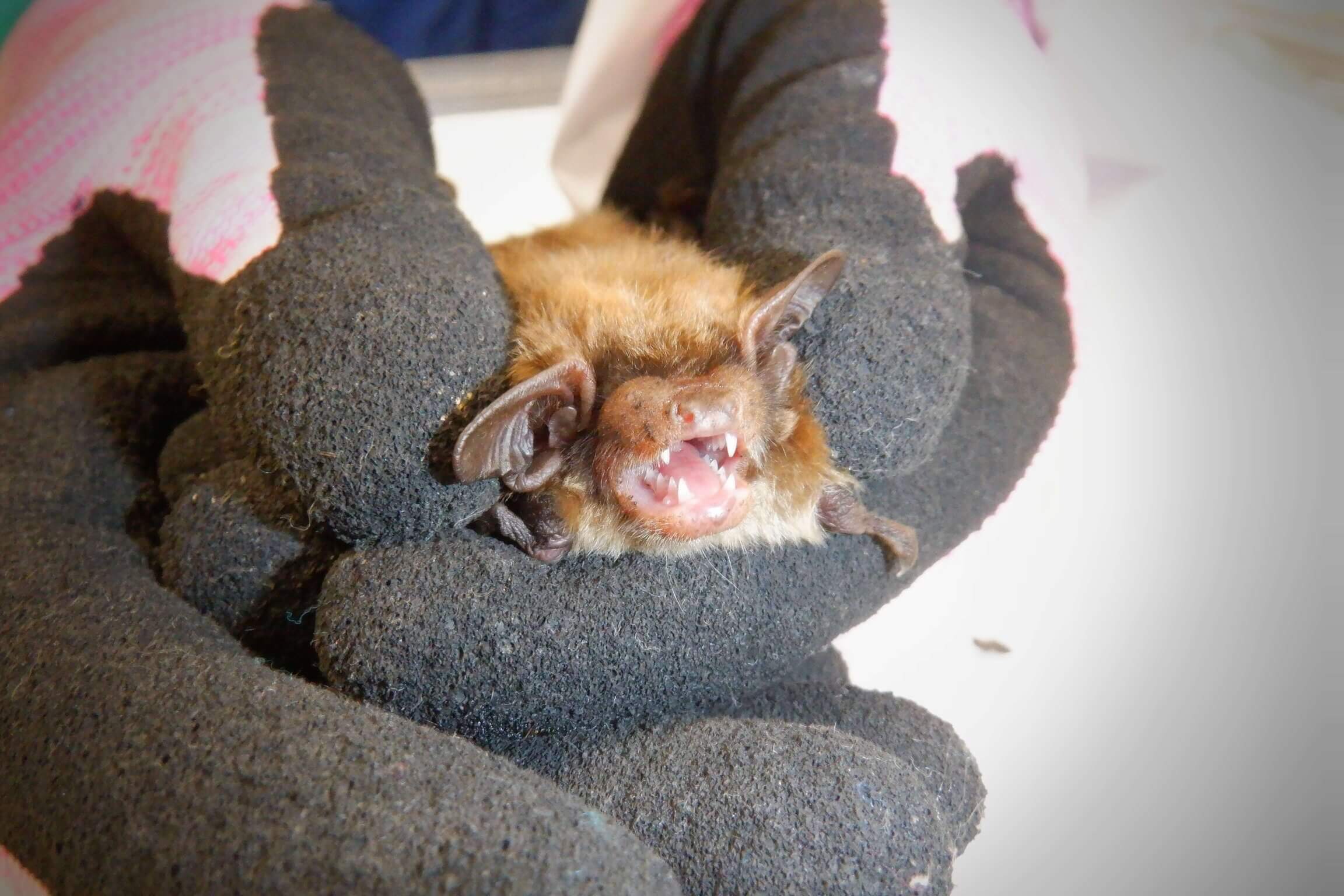
Bat Comparative Immunology
Project Team: Dr. Arinjay Banerjee, Dr. Akarin Asavajaru, Dr. Kaushal Baid, Dr. Arianna M. Hurtado-Monzon, Dr. Sophie-Marie Aicher, Rita Quintela, Victoria Gonzalez, Arely Hernandez, Dr. Kim Lam Chiok, Arkadeb Bhuinya, Dr. Nuraina Anisa, Sauhard Shrivastava, Dr. Benedicte Moni, Dr. Kristof Jenik, Manuela Mniz Tomás Pereira
Dr. Arinjay Banerjee and his team are building a globally unique framework for investigating zoonotic pathogens to develop countermeasures against them.
Zoonotic diseases – those that jump between animals and humans – pose significant risks to global health. For example, bats are known carriers of a variety of deadly viruses, including ebola virus, Marburg virus, Nipah virus, and coronaviruses. Despite hosting these dangerous pathogens, bats remain unaffected, a fact that intrigues scientists and holds the potential to revolutionize human medicine.
The lab is divided into two research teams: one investigating how bats live with these pathogens yet appear unaffected by them, and the other examining why humans become severely ill when infected with these same pathogens. By combining these insights, they aim to develop therapies that could protect humans from similar infections.
Specific projects include:
- Type I interferons (IFNs) are signaling molecules present across all vertebrates that play a critical role in helping us fight against these viruses. This project aims to study how IFN responses have enabled better viral tolerance in bats.
- Studying how some of the highly pathogenic betacoronaviruses show differences in their pathogenic potential. The aim of the project is to discover and characterize the molecular determinants of coronavirus infection-mediated disease pathogenesis in spill over and wildlife reservoir host species.
- Biomimetic approaches to study human respiratory tract infections and therapies. Developing models that recapitulate the lungs and that can be infected with the pathogens that cause COVID-19 and tuberculosis will help us understand how lungs work, how these microbes act interact with the host and with each other, and their impact on therapies and lung health.
- Developing animal models of disease, including bats, hamsters, mice, and guinea pigs.
- Developing tools to study human immunity against emerging viruses.
- Deciphering antiviral cell signaling and virus sensing mechanisms in mammals
Project funders include: Government of Canada, Natural Sciences and Engineering Research Council of Canada, National Institute of Allergy and Infectious Diseases, Saskatchewan Health Research Foundation, Innovation Saskatchewan, CoVaRR Net, Mitacs, CIHR, New Frontiers in Research Fund, Lung Sask

